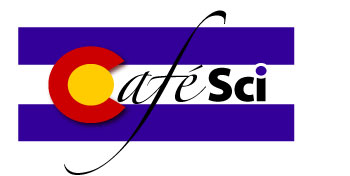About the topic
Bio
Get the Flyer (PDF)
About the topic
Evidence abounds that the universe contains much more mass that we "see"—that is, mass that doesn't emit or absorb light. Yet, the nature of this "dark" matter is still unknown; we know it by its gravitational effects, but we've never detected any of it directly. Understanding dark matter is one of the next frontiers in physics. Clues from astronomy, cosmology, and even particle physics point to the whimsical WIMP—Weakly Interacting Massive Particle—as the most likely candidate for dark matter. What is this particle, and what are its properties? Scientists around the world are searching high and low for the answer to these questions: far out into space as well as deep underground here on Earth. The Cryogenic Dark Matter Search (CDMS) experiment is conducted by a collaboration of more than a hundred scientists, including the speaker, and one of many direct detection efforts underway around the world, all using different techniques. The CDMS experiment is located nearly a half-mile underground and operates at a temperature much less than a half degree above absolute zero. Why are these extremes necessary? What's it like running an experiment at the bottom of a mine? What would discovery look like? (No, we're not there yet—you'd have heard about it!) What is the status, and where do we go from here?
Answers to these questions and more! Dr. Huber will introduce the evidence for dark matter and describe the challenges in conclusively detecting it in the laboratory, with a special emphasis on the CDMS experiment.
A funny and rather lovely artistic attempt to show musically how the crystal detectors would respond when hit by various particles.A PBS program about the CDMS search for Dark Matter with Neil deGrasse Tyson.
HowStuffWorks talks about Dark Matter; page 5 is most relevant to direct detection.
NASA on Dark Energy and Dark Matter.
Wikipedia on Dark Matter is actually quite good.
Bio
Martin E. Huber received his B.S. degree in Physics from the Massachusetts Institute of Technology in 1982. He received his M.S. (1986) and Ph.D. (1988) degrees, also in Physics, from Stanford University. For his dissertation, Martin used superconducting techniques to search for cosmic ray magnetic monopoles, an early candidate for the missing mass, or dark matter, in the universe. Looking for a more practical application of superconductivity, Dr. Huber came to Colorado in 1988 to study Superconducting Quantum Interference Devices (SQUIDs) at the Boulder laboratories of the National Institute of Standards and Technology (NIST) as an NIST/NRC Postdoctoral Research Associate. He has been on the faculty at the University of Colorado Denver since 1991 and is presently Professor of Physics and Director of the Master of Integrated Sciences program.
Dr. Huber collaborates closely with colleagues at NIST, Stanford, and the Weizmann Institute of Science (Israel) in a range of applications involving SQUIDs as sensors and amplifiers. His work has been funded by NIST, the Office of Naval Research, and the National Science Foundation (NSF). He is a member of Phi Beta Kappa, Sigma Xi, the American Physical Society, and the Institute of Electrical and Electronics Engineers. He has served as a reviewer for NSF, Superconducting Science and Technology, and other professional journals. He was a technical consultant for the short film "The Maze".
Dr. Huber has extensive experience with SQUID design, fabrication, and characterization. He is a co-inventor of a patented technology for damping SQUID resonances to improve SQUID operation, and has successfully applied this technology to SQUID series array amplifiers. His current research program ranges from particle astrophysics (Cryogenic Dark Matter Search collaboration) to nanomagnetism.
On the lighter side, Martin is an avid fan of science fiction, lapidary work, and photography.
